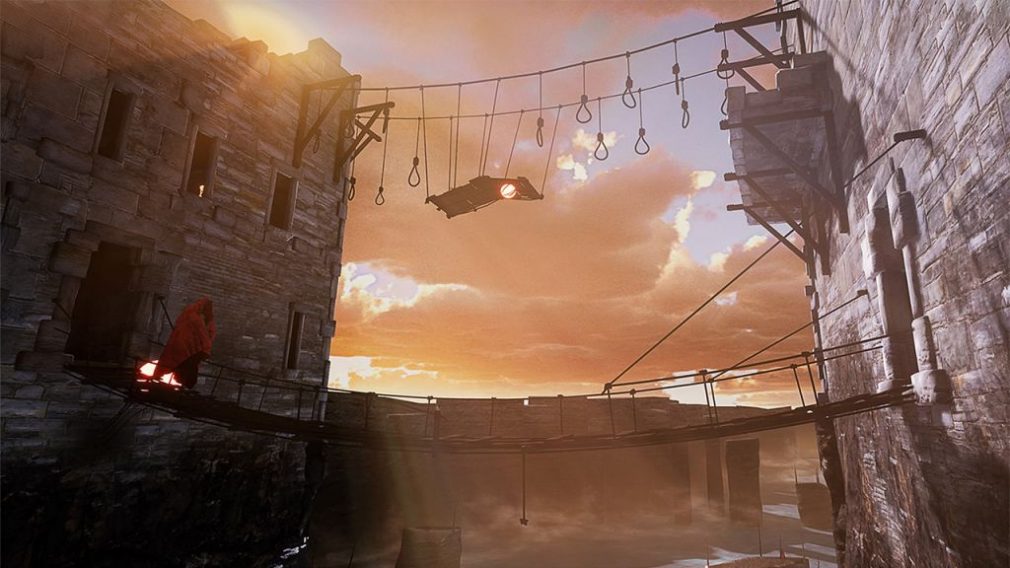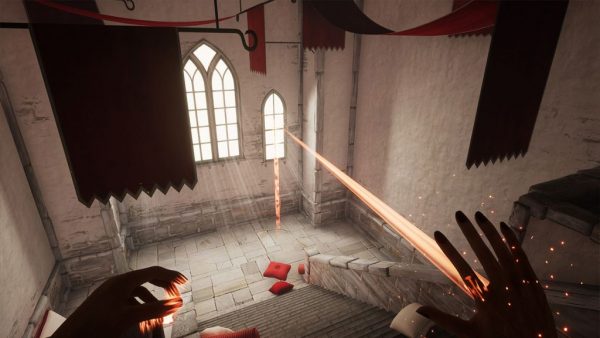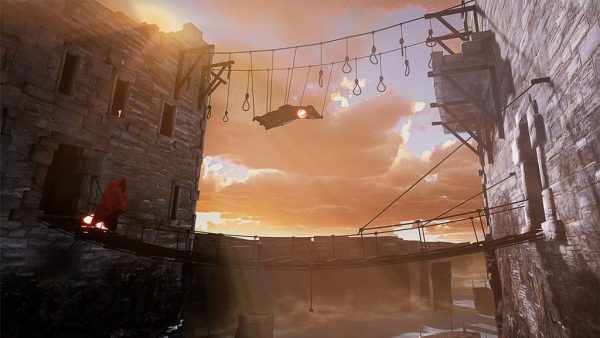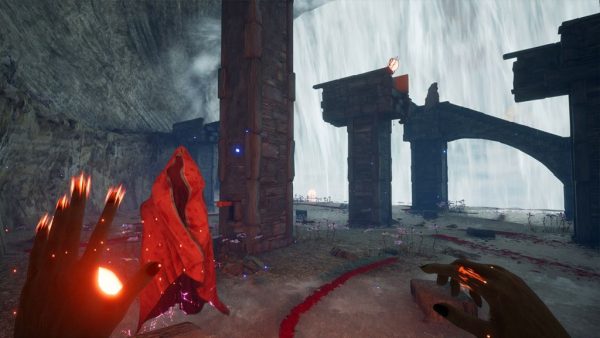Also On: PC, PS4
Publisher: Undergames
Developer: Undercoders
Medium: Digital
Players: 1
Online: No
ESRB: M
The most interesting thing about Infernium is how many disparate influences it brings together. There?s a heavy dose of Dark Souls, a strong helping of The Witness (or whatever other walking sim-slash-puzzler you prefer), and the undeniable presence of Pac-Man, all brought together in a package that?s best classified as survival horror. Those aren?t usually genres you think of as having too much in common, but Infernium is proof that someone, somewhere (specifically, developer Carlos Coronado) thought to at least give it a try.
I?d be lying if I said that I enjoyed it. Or, at least, if I said I enjoyed playing it. Infernium is very nice to look at, flipping the traditional idea of Hell on its head by placing you in a mostly empty world that draws inspiration from the bright, clean worlds of The Witness and Rime. From the majestic castles, to the sandy beaches, to the islands floating in the sky, and all points in between, I frequently found myself wanting to just wander around and take it all in.
The reason I couldn?t is that you?re tasked with trying to escape this fake paradise, but you constantly have to solve puzzles and flee from floating phantoms nearly every step of the way. This is where the Pac-Man influence makes itself known: pretty much every time you come across one of those phantoms, a) they?re standing near a puzzle you need to solve, and b) you aren?t far from labyrinthine corridors in which you can try to lose them. Most of the time, then, your job is to run around in some convoluted pattern, getting the phantom far enough behind you that you can return to your original spot, solve the puzzle, and move on before the phantom is close by. As you can imagine, it?s pretty stressful.
But, for the most part, it?s not stressful in a good way. As creepy as those floating phantoms can be, much of the game suffers from having an inscrutable logic system. You?ll usually get there eventually, but not before you?ve died once or twice in the process.
This is a big deal because your days (or, at least, your lives) are almost literally numbered here. Every time you die you get sent back to the same regeneration place, where you see how many lives you have remaining. You can try to reclaim some of those lives by returning to the place where you died and grabbing your light again, but, as you can imagine, it?s challenging — and given that you usually sacrifice a life every time you solve a puzzle, those lives can run out pretty quickly. (To be fair, there?s a way to reclaim lives even after they?re all gone, but for the life of me — pun not intended — I couldn?t figure out how it worked at all.)
To some extent, I guess, my complaints boil down to the fact that Infernium is just overly hard. But it?s more than just that (though, I?ll admit, constant death is never fun.) There are only so many times you can slowly run away from a phantom before it gets old, and only so many times you can try to figure out the game?s internal logic before it becomes hard to care.
In the game?s defense, the developer seems to have recognized that the difficulty level was a little high, and he did add extra modes that make it less of a challenge. In particular, there are modes that feature no enemies and no permadeath, which, on the one hand, makes a lot of sense — but on the other, they basically turn the game into The Witness, which…let?s just say I have strongly negative feelings about that.
Having said all this, Infernium seems like the kind of game you?ll either love or you?ll hate. Either you?ll adore the way it mashes together a bunch of different ideas, or it?ll frustrate you to the point of wanting to never see the game again. I definitely fell in that latter category, but it?s a mark of how distinctive this game?s vision is that I wouldn?t begrudge anyone who sees it the other way.
Undergames provided us with an Infernium Switch code for review purposes.




